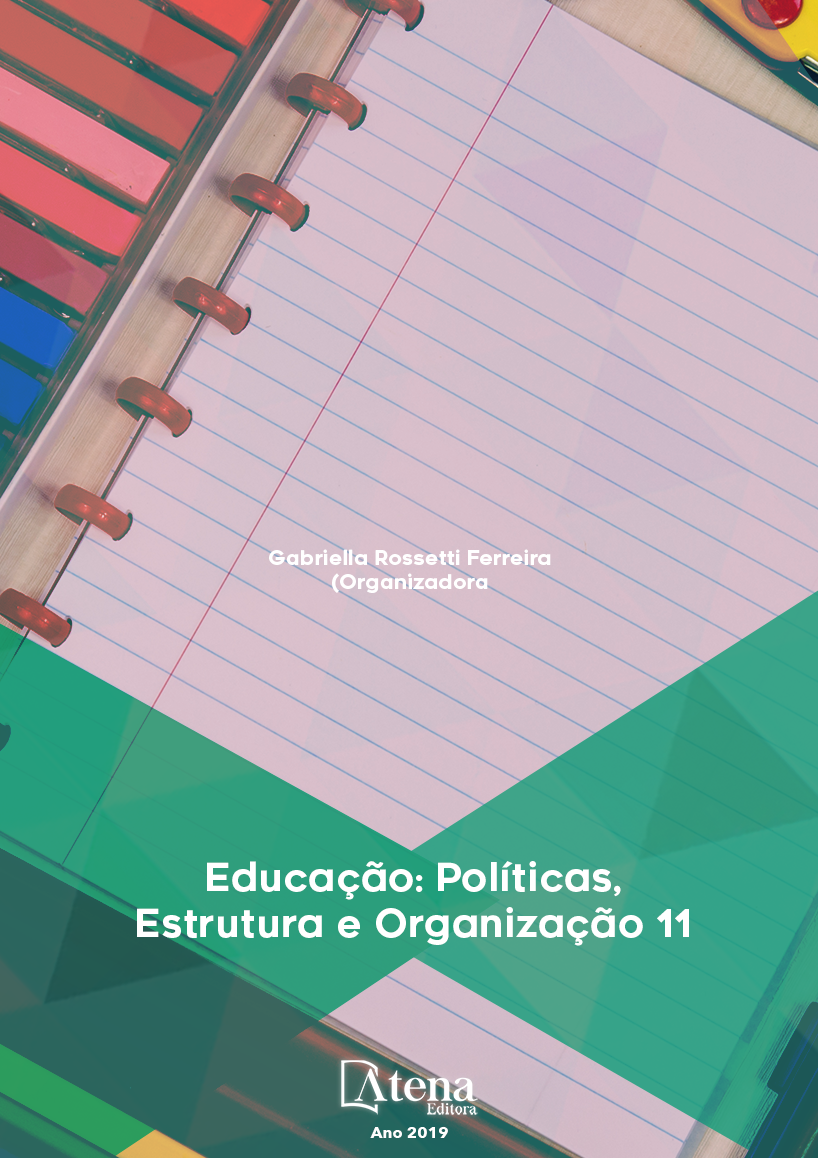
POLÍTICAS PÚBLICAS NA EDUCAÇÃO INFANTIL DE 4 E 5 ANOS: DEFINIÇÕES E PRIORIDADES DE INVESTIMENTO PARA ESTA MODALIDADE DE ENSINO
O referido trabalho propõe uma
análise das práticas nas políticas públicas da
educação infantil de 4 e 5 anos, com foco as
prioridades de investimentos nos diferentes
segmentos que compreende esta modalidade
de ensino. Na educação Infantil, primeira
modalidade de ensino regular de suma
importância a criança tem direito em todos
os sentidos. Ao educador cabe considerar o
tempo de aprendizagem de cada estudante e
possibilitar diferentes estratégias metodológicas
de ensino, unindo tudo a sua vivência cotidiana
para que este saber tenha sentido para o mesmo.
Contudo, isso só é possível quando as políticas
educacionais são condizentes e possibilitam
aos sujeitos envolvidos meios para que haja a
efetivação da aprendizagem. Nesse sentido,
analisar se realmente há avanços nas políticas
públicas de educação infantil da criança de 4 e 5
anos e quais os desafios enfrentados para que
de fato se concretizem na prática dentro das
instituições de ensino, estas políticas é o objetivo
principal dessa pesquisa, a qual foi realizada na
Rede Municipal de ensino São Bento do Una,
na primeira etapa sendo de caráter documental,
buscou-se alguns embasamentos teóricos como
as Diretrizes Curriculares da Educação Infantil,
Base Nacional Curricular para a Educação
infantil e numa segunda etapa, uma pesquisa
exploratória qualitativa onde analisamos os
dados coletados em entrevista realizada com
a dirigente do FUNDEB Municipal, um gestor
, um coordenador e um professor da rede
Municipal de ensino. Onde concluímos que
investimentos em programas de formação e
materiais adequados são indispensáveis para a
formação dessa modalidade de ensino infantil.
POLÍTICAS PÚBLICAS NA EDUCAÇÃO INFANTIL DE 4 E 5 ANOS: DEFINIÇÕES E PRIORIDADES DE INVESTIMENTO PARA ESTA MODALIDADE DE ENSINO
-
DOI: 10.22533/at.ed.12519030410
-
Palavras-chave: Saberes. Desafios.Perspectivas. Avanços.
-
Keywords: Know. Challenges. Perspectives. Advances.
-
Abstract:
his work proposes an analysis of the practices in public policies of 4
and 5 years old children’s education, focusing the investment priorities in the different
segments that comprise this modality of education. In early childhood education, the
first form of regular education of paramount importance, the child is entitled in every
way. The educator should consider the learning time of each student and enable
different methodological strategies of teaching, uniting all their daily experience so
that this knowledge has meaning for the same. However, this is only possible when
educational policies are appropriate and enable the individuals involved to have the
means to achieve learning. In this sense, to analyze if there are really advances in the
children’s public education policies of 4 and 5 years old and what challenges are faced
in order to concretize them in practice within educational institutions, these policies
is the main objective of this research, the which was carried out in the São Bento do
Una Municipal Teaching Network, in the first stage being of a documentary nature,
we searched for some theoretical bases such as the Curricular Guidelines for Early
Childhood Education, National Curricular Base for Early Childhood Education and in a
second stage, an exploratory research qualitative study where we analyzed the data
collected in an interview with the FUNDEB Municipal manager, a manager, a coordinator
and a teacher of the Municipal teaching network. We conclude that investments in
training programs and adequate materials are indispensable for the formation of this
modality of infantile education.
-
Número de páginas: 15
- Ana Lúcia de Melo Santos
- Edilene Maria da Silva
- Marilene da Silva Lima
- Nubênia de Lima Tresena
- kátia Tatiana Moraes de Oliveira


